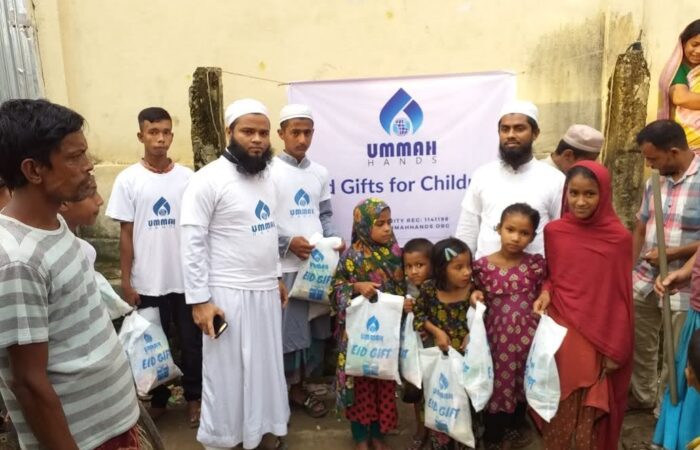It was reported by the United Nations refugee agency and the UNHRC, that on Monday, 22nd March, fifteen people had been killed (though other sources claim dozens), four hundred were missing and thousands had been left homeless and a patronizing estimate from between forty to fifty thousand people have been affected from the tremendous fire that overtook a Rohingya refugee camp in the nation of Bangladesh. Almost a million from the minority population of Myanmar are forced to encompass the limited and squalid conditions at the camps of the Cox’s Bazar district. The district is divided into thirty-four camps and ranges over the small area of 3237 hectares and attaches itself to two more camps and when the fire started it managed to tear through the expanse that housed an approximate 124,000. Several residents, witnesses and officials have claimed it to be one of the worst blazes to hit the land in recent years. The terror lasted a staggering total of ten hours even with emergency services amidst the situation.
The exact cause of the fire has not yet been determined, though authorities are still investigating the situation. It has been argued by many, however, that one of the primary reasons that victims were unable to make an escape was due to the barbed wire fences blocking their salvation. Activist groups have stated that the government has produced at least twenty-eight thousand meters of barbed wire fencing as well as watchtowers that encapsulate the largest areas of the camp. Not only did these prevent a needed escape route for victims but it majorly slowed down help to get in. Fire services and volunteers struggled to squander in to save people and put out the rage and though the severity of these measures has been raised by many, Bangladesh continues to defend the rule. The majority of inhabitants of the camps are those who desperately needed to escape the heinous conformity of the military crackdown in their homeland, only to have yet another disaster, destroy yet another home. More than seventeen thousand shelters were annihilated in the devastation of this burn. With homes gone, this, of course, leaves a vulnerable mass of women, children and families stranded with little to no means of survival, even with organizations and humanitarian services working tirelessly to provide people with health care, shelter and basic maintenance, forty-five thousand are still left defenseless. Besides conspicuous perils such as starvation and dehydration, many run the risk of human and child trafficking, fire safety, gender-based abuse to name a few.
A victim of the tragedy, Sayedul Mustafa, who ran a local mini-mart was made to confirm several of his staff dead. “We had five workers who slept in the shop but three of them were missing. Then after the fire was put out with water, we found one body first, then all three. Two people survived by the grace of Allah,” Aneesul Mustafa, a Rohingya refugee, and the owner’s relative, told The Associated Press news agency. Another refugee, Kamal Hossain, who conducts a booth in the camp in order to assist lost children, delivered his perspective and some of the recurring conditions that take place. He explained that after the fire and the hundreds that were missing, many of them being children and so he was presented with the difficulty of reuniting a series of families. Kamal explained that “here you will find so many people and [you] cannot be sure who is good or bad”, so when handing children over he made certain that it was confirmed by the child that they were their correct guardians. With his own family has experienced the trauma of immigration, Kamal and his microphone on the rough dirt road have become one of the very short list of sources of hope for people who have lost friends, loved ones and families. “I announce five things: name of the village [in Myanmar], name of the child, name of mother, name of father and age of the child,” said Kamal and added that he also includes the child’s clothing which is all eventually recorded in his workbook. Kamal can usually be found making his 40-50 announcements in the booth with other volunteers, the booth includes a free charging station for refugees with mobile phones (which usually have a fee of about ten Bangladeshi Taka $0.12 or £0.087) Kamal starts his long shift from 8.30 in the morning and finishes late at night.
On Saturday, Kamal explained that a chilling number of 1200 people, a majority being mothers reported missing family members and he estimates that 700 families have been reunited, but adds that many families that are reunited do not report back, while those who are still looking come back often in hopes of receiving any updates. He also mentioned several other truly horrific incidents; a sixteen-year-old girl that was found crossing the border with no knowledge of where any of her family members were, a mother that was forced to witness with her own eyes the murder of her husband and child, and an (estimated) seven-year-old girl that had been separated from her family upon her arrival.
There is so much that we can do to help victims of such a tragedy, so much we can give to save these desperate women, children, and families that are in constant danger and under attack by countless forces. We can try to at the very least remove one of the many obstacles that Rohingya victims face every day. Pay for a little girl’s protection, or a mother’s shelter or a family’s meal for the day, do something this Ramadan for the sake of Allah, and help protect those that are suffering more than you and I.


